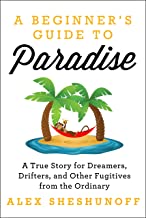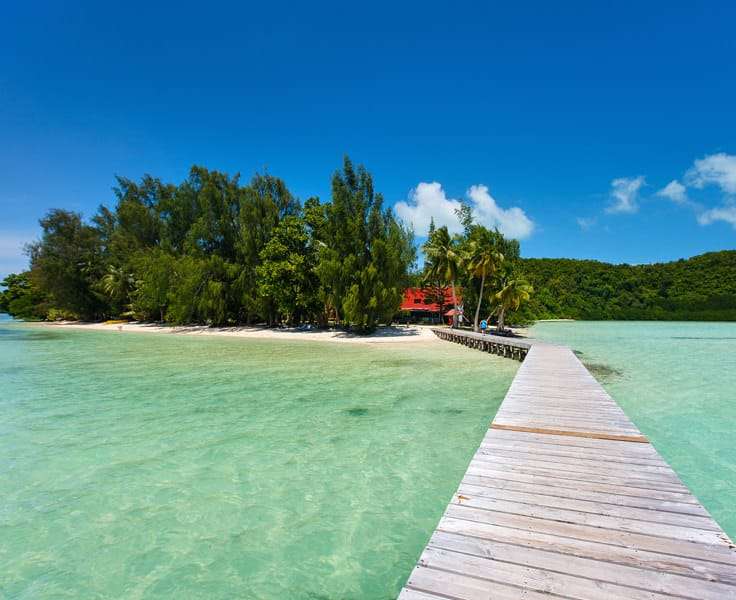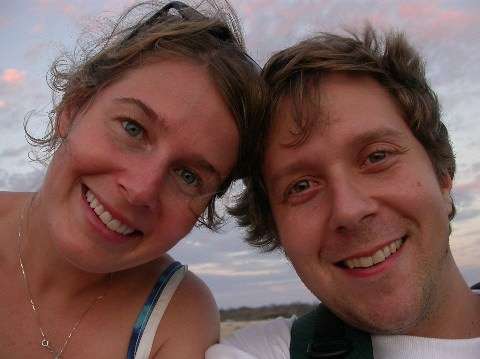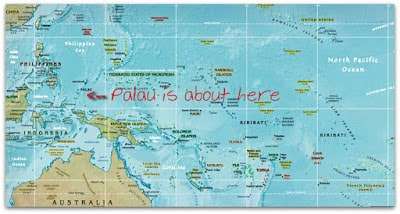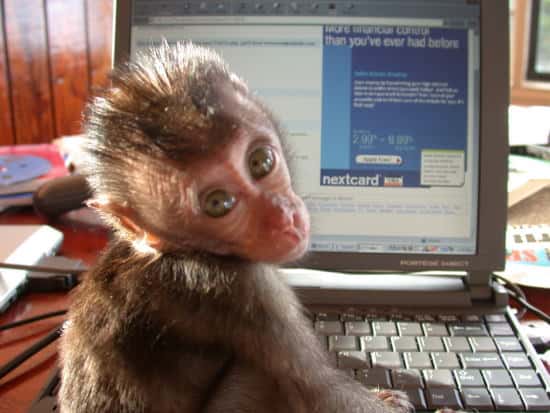A Beginner’s Guide to Paradise by Alex Sheshunoff
It’s the classic American dream of everyone who’s burnt out, had enough, and ready to give up. “One of these days,” we think, “I’m going to chuck it all and live on a beach on a remote Pacific island.” So many of us have thought about it, yet it’s shocking how few people actually do it. In fact, chances are that you’ve never met a single person who’s left behind the life of deadlines, pressure and hullabaloo to sit in the sand with their feet in the water.
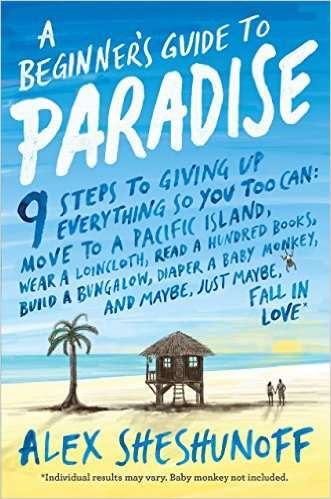 Well, meet Alex Sheshunoff. With a Yale degree in hand, Sheshunoff started and ran the Internet company E-the People, a non-partisan precursor to MoveOn.org. The company was a tremendous success, but soon, Sheshunoff would experience what he calls a “quarter-life crisis,” and was ready to go native.
Well, meet Alex Sheshunoff. With a Yale degree in hand, Sheshunoff started and ran the Internet company E-the People, a non-partisan precursor to MoveOn.org. The company was a tremendous success, but soon, Sheshunoff would experience what he calls a “quarter-life crisis,” and was ready to go native.
Sheshunoff gathered the 100 books he was “most embarrassed not to have read in college,” and, having given up everything he thought he was supposed to have wanted, bought a one-way ticket to the Pacific Island of Yap.
What happened next is the subject of his book, A Beginner’s Guide to Paradise: 9 Steps to Giving Up Everything So You Too Can: Move to a Pacific Island, Wear a Loincloth, Read a Hundred Books, Build a Bungalow, Diaper a Baby Monkey, and Maybe, Just Maybe, Fall in Love (New American Library; September 1, 2015). It’s a king-sized title for a king-sized journey, an adventure that would change his life permanently. Simultaneously profound and played for laughs, the book answers all the questions you might have about heading out for the Pacific, including: How do you know if the hunk of steaming sea turtle you’ve just been handed is undercooked? How will the spreadsheet program Excel help you in your search for paradise? And how do you effectively yet respectfully woo a woman with Pringles?
Today, Sheshunoff lives in Ojai, California with his wife and their two sons. He recently chatted with BookTrib about paradise, life crises and turning his exploits into a book.
BookTrib: I’m guessing that giving up everything and moving to a Pacific island might not be for everyone. What can these people do to find their own version of “paradise”? In other words, what is your universal definition of “paradise,” and how might people arrive at it for themselves?
Alex Sheshunoff: Paradise is pretty personal. Lacking imagination, mine was the screensaver, Far Side version with the palm trees stretched out over the ocean. But I read recently that Supreme Court Justice Clarence Thomas drives his R.V. between Wal-Mart parking lots all summer long. So I suppose it’s different for everyone!
Whatever your idea of paradise, however, I think the trick is not waiting for the perfect opportunity to arise. After all, an ideal life isn’t something you’re going to back into—you’re going to have to make some arrangements. For me, that started with an Internet search for, “Really nice Pacific island.” I don’t know what Clarence Thomas searches for. Maybe “Super Wal-Mart nearby.”
BT: After such a dramatic change to your life during your “quarter-life crisis,” what do you suppose your mid-life crisis has in store for you?
AS: Well, I’ve done the move-to-a-tiny-island-with-a-bunch-of-books thing. Next one won’t be nearly as interesting—probably just sports cars and hookers.
BT: Tell me a little bit about the “journey” of writing the book. What were the biggest challenges you faced when you created the manuscript, and then recreated it as part of your master’s degree program?
AS: My biggest problem was that I had no idea what I was doing. As the saying goes, “just because you’ve been to a lot of symphonies doesn’t make you qualified to write one.” The same for books. I had to go to graduate school to learn how to tell a story. And even how to punctuate. (One tip: Never Google, as I once did, “How to use the colon?”) Mostly, writing this book just meant spending an embarrassing amount of time in cafes trying to write jokes about the Pacific, in between checking email, Facebook, the newspaper, etc.
BT: What part of your experience with paradise do you carry with you in your life now?
AS: Well, I ended up marrying a woman I met out there while on a full-moon kayak ride, but I don’t really “carry her” all that often—though we do spend a lot of time together! More to your question, now that I’m back, I do try to stay focused on three things:
The first is not to fall for the time-sucking illusion that loyalty to bad choices will somehow make them better. Commitment to bad choices usually just makes them worse.
The second is to focus only on the things you actually care about. It sounds really simple, but a lot of us waste a huge amount of energy working towards goals that are other peoples’ goals.
Lastly, and I know this sounds hokey, but if you have a dream, something you really want to do—don’t get too tangled up in your own underpants asking yourself if it’s the right thing to do. And don’t listen to all the experts along the way. Because when it comes to the big decisions, the really big choices, we’re all just beginners.
Buy this Book!
Amazon